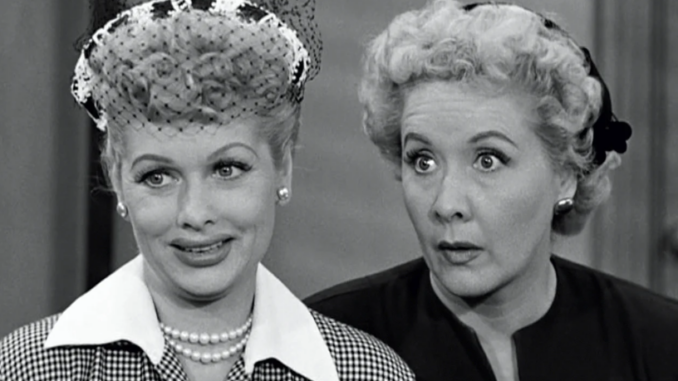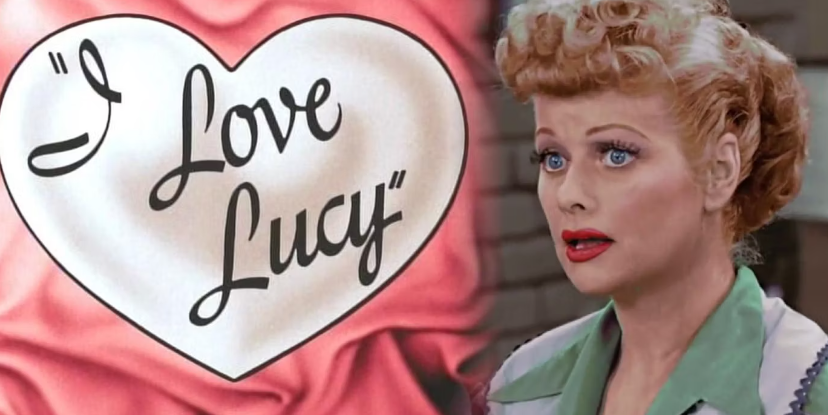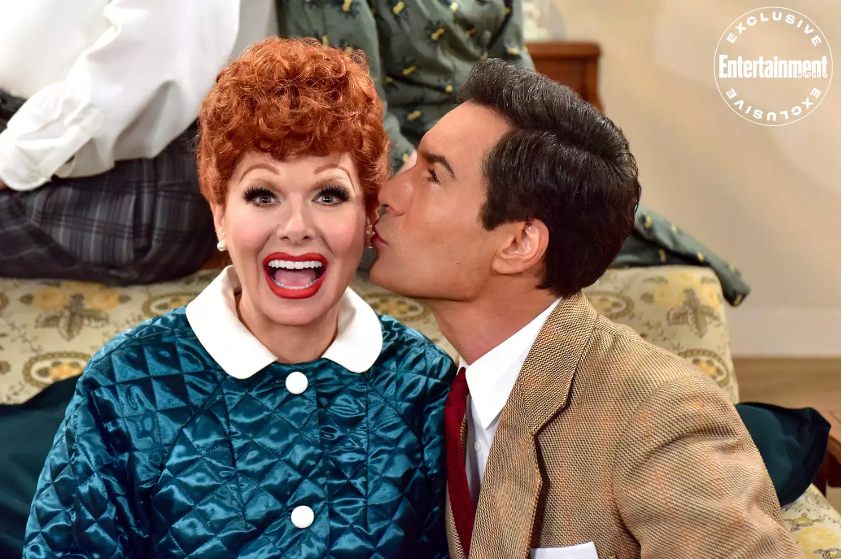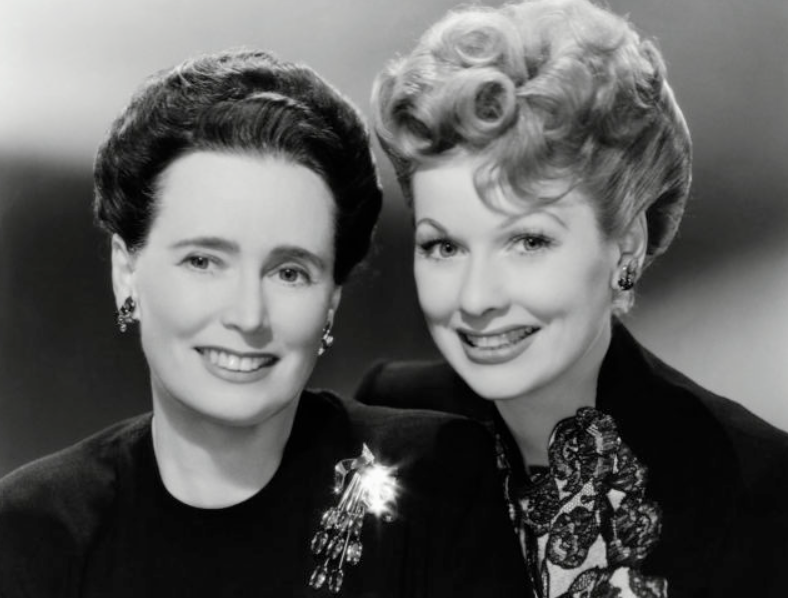
“I Love Lucy” is not just a television show; it is a cultural milestone that transformed the landscape of American television comedy. Since its debut on October 15, 1951, this iconic sitcom has been cherished for its groundbreaking influence, stellar performances, and innovative production techniques. In this article, we will explore the legacy of “I Love Lucy,” detailing why it remains a beloved classic and a benchmark in the history of television comedy.
Contents
- The Genesis of “I Love Lucy”
- Lucille Ball: The Queen of Comedy
- Desi Arnaz: The Perfect Counterpart
- The Supporting Cast: Essential to the Show’s Success
- Innovative Production Techniques
- The Role of Desilu Productions
- The Writing Team: Crafting Timeless Comedy
- Memorable Episodes
- Legacy and Influence
- Cultural Impact
- Awards and Recognition
- The Legacy of Bob Schiller and Bob Weiskopf
- Contributions Beyond “I Love Lucy”
- Conclusion: The Enduring Magic of “I Love Lucy”
The Genesis of “I Love Lucy”

“I Love Lucy” premiered on CBS and quickly became a hit, capturing the hearts of millions of viewers. Starring Lucille Ball as Lucy Ricardo and Desi Arnaz as her husband Ricky Ricardo, the show centered around the comedic adventures and misadventures of the Ricardo family. Lucille Ball’s unparalleled comedic talent, combined with Desi Arnaz’s charm and musical prowess, created a dynamic and unforgettable duo.
Lucille Ball: The Queen of Comedy
Lucille Ball’s performance as Lucy Ricardo solidified her status as one of America’s most beloved comediennes. Her unique blend of physical comedy, expressive facial gestures, and impeccable timing set her apart in the entertainment industry. The Hollywood Reporter praised her in a 1951 review, noting that Ball combined “the facial mobility of Red Skelton, the innate pixie quality of Harpo Marx, and the daffily jointless abandon of the Patchwork Girl of Oz.” This unique combination made her a perfect fit for the emerging medium of television.
Desi Arnaz: The Perfect Counterpart

Desi Arnaz’s role as Ricky Ricardo was equally important to the show’s success. Arnaz’s ability to balance Ball’s comedic antics with his own charisma and musical talent made the on-screen relationship believable and endearing. The chemistry between the real-life married couple translated seamlessly onto the screen, adding depth and authenticity to their performances.
The Supporting Cast: Essential to the Show’s Success
The success of “I Love Lucy” was not solely due to its leading stars. The supporting cast, including William Frawley as Fred Mertz and Vivian Vance as Ethel Mertz, played crucial roles in the show. Frawley and Vance portrayed the Ricardos’ landlords and best friends, providing additional layers of humor and interaction. Their comedic timing and chemistry contributed significantly to the show’s overall charm and appeal.
Innovative Production Techniques

“I Love Lucy” was a pioneer not only in content but also in its production techniques. The show was one of the first to be filmed in front of a live studio audience using a multi-camera setup, a method that became a standard in sitcom production. This approach, along with high-quality sets designed by Larry Cuneo and exceptional cinematography by Karl Freund, ensured the show maintained a polished and professional look.
The Role of Desilu Productions
Desilu Productions, founded by Lucille Ball and Desi Arnaz, played a pivotal role in the show’s success. Their decision to film the show in Hollywood and use 35mm film were key choices that enhanced the show’s quality and longevity. Desilu Productions not only produced “I Love Lucy” but also paved the way for future television hits, establishing the company as a significant player in the entertainment industry.
The Writing Team: Crafting Timeless Comedy
The scripts for “I Love Lucy” were crafted by a talented team of writers, including Jess Oppenheimer, Madelyn Pugh, and Bob Carroll Jr. Their ability to create humorous and relatable scenarios was a key factor in the show’s enduring appeal. The addition of writers Bob Schiller and Bob Weiskopf in the fifth season brought fresh perspectives and ideas, contributing to some of the show’s most memorable episodes.
Memorable Episodes
Schiller and Weiskopf were behind some of the show’s most iconic episodes, such as the one featuring guest star John Wayne and the hilarious “grape stomping” episode in Italy. These episodes remain fan favorites and exemplify the creative brilliance of the writing team.
Legacy and Influence
The impact of “I Love Lucy” on television and popular culture is immeasurable. The show set a high standard for sitcoms and introduced several innovations that are still used in the industry today. Its success demonstrated the viability of filmed television comedies and highlighted the importance of high production values.
Cultural Impact
“I Love Lucy” has remained a beloved classic for over seven decades, influencing generations of viewers and comedians. The show’s reruns have introduced Lucy Ricardo’s antics to new audiences, proving the timelessness of its humor and the universality of its themes. The phrase “I Love Lucy” itself has become synonymous with quality entertainment, and Lucille Ball is remembered as one of the greatest comedians in television history.
Awards and Recognition
Throughout its run, “I Love Lucy” received numerous accolades, including five Emmy Awards. Its innovative approach and outstanding performances were consistently recognized by critics and audiences alike. The show’s enduring popularity led to several spin-offs, specials, and even a successful stage adaptation.
The Legacy of Bob Schiller and Bob Weiskopf
Bob Schiller and Bob Weiskopf, two key writers for “I Love Lucy,” left a lasting legacy in the world of television comedy. Their partnership, which spanned nearly five decades, produced some of the most beloved episodes of not only “I Love Lucy” but also other classic shows like “All in the Family.” Their ability to tackle social issues with humor and sensitivity made their work stand out and remain relevant to this day.
Contributions Beyond “I Love Lucy”
Schiller and Weiskopf’s contributions extended beyond “I Love Lucy.” They wrote for numerous other shows, including “Make Room for Daddy,” “The Bob Cummings Show,” “The Lucy-Desi Comedy Hour,” “The Ann Sothern Show,” and “Pete and Gladys.” Their work on “All in the Family” was particularly notable, as they addressed controversial topics such as race, gender, and sexual assault with both humor and gravity.
Conclusion: The Enduring Magic of “I Love Lucy”
“I Love Lucy” is more than just a television show; it is a testament to the power of comedy and the enduring appeal of well-crafted entertainment. Lucille Ball and Desi Arnaz’s visionary approach to television production, combined with their extraordinary talent, created a series that continues to delight and inspire. As we look back on the legacy of “I Love Lucy,” it is clear that the show’s magic is as potent today as it was in 1951.
For fans of classic television and newcomers alike, “I Love Lucy” offers a masterclass in comedic excellence and a glimpse into the early days of a medium that has since become an integral part of our lives. If you haven’t yet experienced the joy of watching Lucy’s hilarious escapades, there’s no better time to start.

